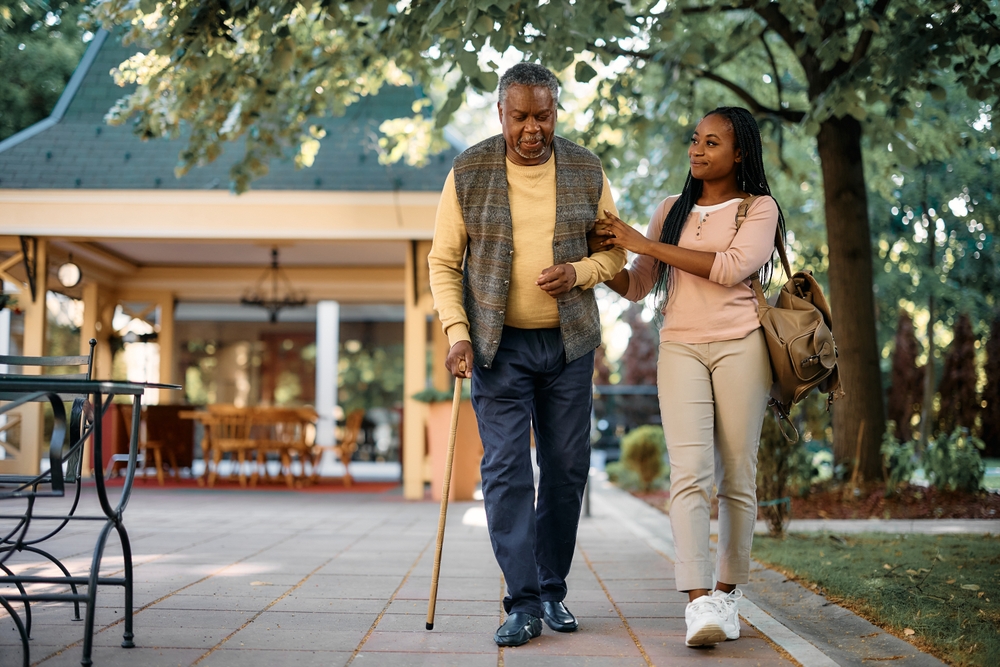Benefits of the Elderly Living at Home
Category:

Aging in place refers to older adults choosing to live at home rather than in assisted living facilities. There are numerous benefits to this, including a sense of independence and peace of mind. In this post, we’ll review the following about elderly people at home:
- Why older adults choose to live at home
- The benefits of seniors living at home
- Providing help for the elderly living at home
Download Our FREE Path to Care Guide
Why Do Seniors Want to Stay in Their Homes?
Older adults may choose to stay at home for the following reasons.
- Comfort and familiarity. Seniors value the comfort and memories associated with their homes, preferring a familiar environment.
- Independence and control. Aging in place allows seniors to maintain daily routines and make personal choices.
- Social connections. Staying at home keeps seniors close to their communities, friends, and family.
- Cost-effectiveness. Remaining at home can be more affordable than assisted living.
- Personalized care. Seniors can adjust home environments and routines to their specific needs.
- Safety and peace of mind. Familiar home layouts can reduce fall risks and offer a sense of security.
Now that we know more about why seniors stay at home, let’s take a look at the benefits of keeping seniors at home.
What Are the Benefits of Elderly Living at Home?
The benefits of aging in place include:
- Comfort. Home care allows seniors to remain in familiar surroundings, which is especially helpful for those with memory-related conditions.
- Personalized care. Care plans are tailored to individual needs and schedules.
- Faster recovery. Home environments can speed up recovery and lower risks of infection.
- Cost effective home care. Home care can be more affordable, with flexible rates.
- Peace of mind. Safety and well-being are ensured.
- Companionship. Caregivers provide social interaction, reducing loneliness.
- Family involvement. Families can actively participate in care.
- Pet ownership. Seniors can keep their pets with caregiver support.
Now that we know more about the benefits of keeping the elderly in their own homes, let’s examine how to help elderly stay in their homes.
How to Keep Elderly in Their Homes
Staying at home may sound simple on paper but for many older adults, there are a lot of factors to consider when choosing to age in place. Luckily, there are several services for elderly living at home that can make it easier. Aspects such as home modifications or simple access to transportation can make a huge difference for the wellbeing of older adults. Help for elderly living at home can include:
- Household maintenance. Services for laundry, shopping, gardening, and handyman tasks can help manage home upkeep.
- Transportation. Access to public transport, rideshares, and senior services can enhance independence and social connections.
- Home modifications. Adjustments like grab bars and ramps can make homes safer and more accessible for limited mobility.
- Personal care. Assistance with daily activities and personal care can be provided by home health aides, offering flexible support.
- Health care. In-home healthcare services, such as nursing and therapy, may be available, but some costs may be out-of-pocket.
- Day programs. Adult daycare offers activities and socialization, benefiting both older adults and their Caregivers.
To learn about our home care services, contact our caregiving team today at 1-800-GRISWOLD or find a Caregiver near you.
Subscribe
Date: 2024-11-27
Category:

